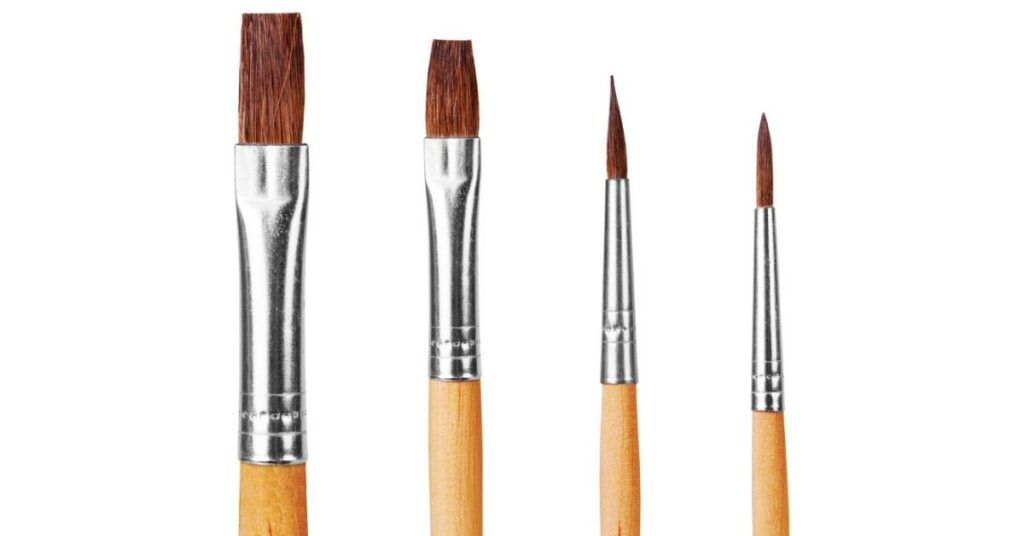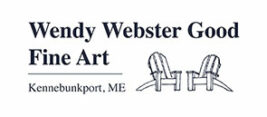Brushes are an important tool for your success. There are a lot of types of brushes offered for painting watercolors, which can be confusing; let me be of help.
Let’s start with synthetic brushes, which typically are the most affordable, tend to keep a full spring (the brush holds together and does not splay when applied to the paper), and snap when wet (how quickly the bristles snapback). The downside of synthetic brushes is that they do struggle to grab and hold onto large amounts of paint and therefore will unload the large amounts of paint in one place instead of evenly distributing the pigment. Additionally, they wear out fast.
Natural bristles can be expensive but with care, they will last forever. The hair holds a lot of water and pigment and thus evenly distributes the paint, giving you a more even flow and control over your painting. The benefits of natural bristle outweigh the synthetic.
Next, we have flat brushes and round brushes that vary in size. You will definitely want a flat brush that is at least 1” wide, this will give you the ability to cover large spaces with nice even strokes. I also have a smaller flat brush which is about 1/3” wide. I prefer this size when I want to have fun dabbing paint for tight spots. I have two round brushes that are my main go-to’s. One is very small with a nice point, which is used for detailing. When I wash my round brushes, I always reshape the point and dry them standing on end so the air can get to the bristles. My second round brush is much bigger, maybe a size 12”, but the nice thing about the natural hairbrush is that no matter how small or large they are when I apply more pressure they can go wider, or with less pressure, the stroke can narrow. The point on either size round brush can do detail. I love how much water and pigment the natural bristle can hold and thus spreading the paint evenly.
When buying your materials make sure to buy small and large brushes. Don’t be afraid of the price tag for the natural bristle, it will be a lifetime friend that will treat you well. With my students and through my own experience, synthetic brushes can be frustrating and frequently need to be replaced. I do, however, use stiff synthetic brushes for scrubbing. The stiffer brush, the better for scrubbing.
For a push in the right direction, I have linked brushes here and here.
~ Wendy

